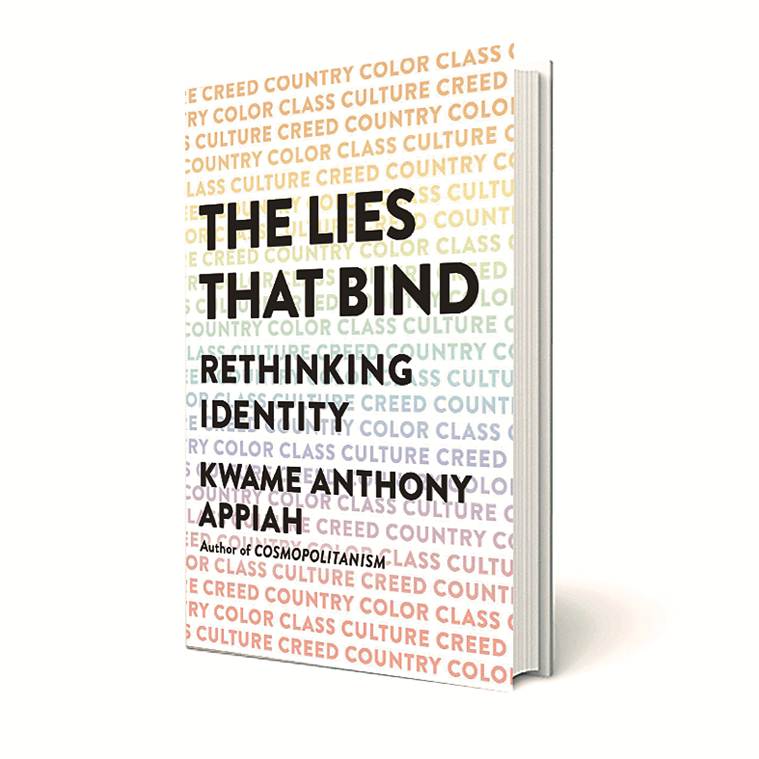The Lies That Bind book review: The Crisis of Identity
That which defines is also that which reduces, writes Kwake Anthony Appiah in a deeply perceptive analysis of the problematics of selfhood

People waiting at the UIDAI Centre in New Delhi’s Pragati Maidan to apply for and update their Aadhaar card details. (Express photo by Abhinav Saha)
Of the many paradoxes associated with discussions of identity, one in particular stands out. The first is that philosophers and social scientists are often very good at exposing the errors that lie behind identity claims. And yet, at the same time, identities seem to acquire an inescapable social hold on us; the more we seem to deconstruct them in scholarship the more necessary they seem to become in politics.
Kwame Anthony Appiah’s The Lies That Bind is a brilliant, eloquent, measured and deeply humane exploration of identity. It will cement his reputation as one of the important public philosophers of our time. He begins with some general considerations of identity, acts of classification by which people are made one thing rather than another. Identities, as Appiah argues, involve “taking a label and a picture of how to apply it, that entertains norms about how people who have the label should behave and how they should be treated.” And, in this very act of classification, we see the paradox emerge. On the one hand, the act of classification can involve a number of dangers.
An act of classification, by its very nature, relies on abstraction, making us less than what we are. It abridges the complexity of who we are. It often relies on the fallacy of essentialism: like imputing something in common to members of particular group. It can involve normative mistakes — assuming that moral claims follow from some fact of group membership. It can also involve naturalisation — assuming that a set of social relations like gender are rooted in some biological facts.
And yet, at the same time, identities are all around us. Most significantly, identities are not just abstractions we carry in our heads; they are often central to how we deploy our bodies. They shape a set of dispositions, of how to behave and respond to the world, that have extraordinary durability; often more so precisely because we are not conscious of the habits that shape us. Identities, in some ways, seem necessary to being an agent at all. To not have an identity might seem less a recipe for liberation, more a recipe for existential vertigo. But we are often concerned about the ways in which identities, to use Appiah’s phrase, go “awry.”
They can go awry in different ways: normatively our obsession with our identity can displace claims of justice; psychologically, our identities can mutilate the complexity of our experience; politically, they can prevent the emergence of societies that can intelligently deal with the facts of differences; and epistemologically they can force us to live a lie that denies the complexity of history or in some cases even scientific facts.
Appiah explores the senses in which identities go awry across a numbers of domains: creed, country, colour, class and culture. Each of these sections is a beautifully written meditation on a particular aspect of identity, with trademark Appiah sentences that capture clearly in a few words, what other scholars might take tomes to elucidate. For example, Appiah is spot on in his account of the complexity of religious experience. He brilliantly manages to capture what a genuinely religious engagement with scriptures looks like.
He writes, “To be a scriptural adept is to know which passages to read into and which to read past,” a rebuke both to scriptural fundamentalists, but also, I suspect, many secular readings of scripture. Similarly, on nationalism, he sees the nation as a “fabric to be woven, not a mineral to be minded.” In an age when class and identity politics are often seen as alternatives to each other, Appiah’s chapter is a reminder that class is still, perhaps, the most enduring form of identity.
Appiah’s discussion of these matters is enlivened with vivid examples, a stunning range of historical references, and his own extraordinary heritage and personal biography. It is in some ways a model of what a deeply lived and embodied cosmopolitanism looks like. There is a gently persuasive force to Appiah’s argument that is hard to resist.
But like identity itself, the book seems both deeply satisfying and incongruous at the same time. I think the incongruity comes from two things. Appiah’s own generosity often seems to minimise deep conflict (particularly evident in his discussion of class or Singapore as a model of multiculturalism). And, somehow, the calmness of the discussion, perhaps itself a necessary political and philosophical gesture, seems to leave you a bit puzzled about the passionate furies of identity politics.
Can the scriptural fundamentalist, racist, rabid nationalist, cultural colonialist, simply be cured by pointing out their intellectual mistakes? How has bad identity politics survived decades of intellectual suspicion? Perhaps is there a distinction to be made between identity and identification? Is it the case that very little about the “facts” of identity explains how people choose to identify with something? Is telling the nationalist that his history is false, his conception of other people essentialist, and his ignorance of diversity morally problematic, all there is to resisting a nationalism gone awry? Perhaps, a future book will explain how identification survives the exposure of the “lies that bind”.
Pratap Bhanu Mehta is vice-chancellor of Ashoka University






















 The Lies That Bind: Rethinking Identity; Kwame Anthony Appiah; Profile Books; 256 pages; Rs 2119
The Lies That Bind: Rethinking Identity; Kwame Anthony Appiah; Profile Books; 256 pages; Rs 2119
No hay comentarios:
Publicar un comentario